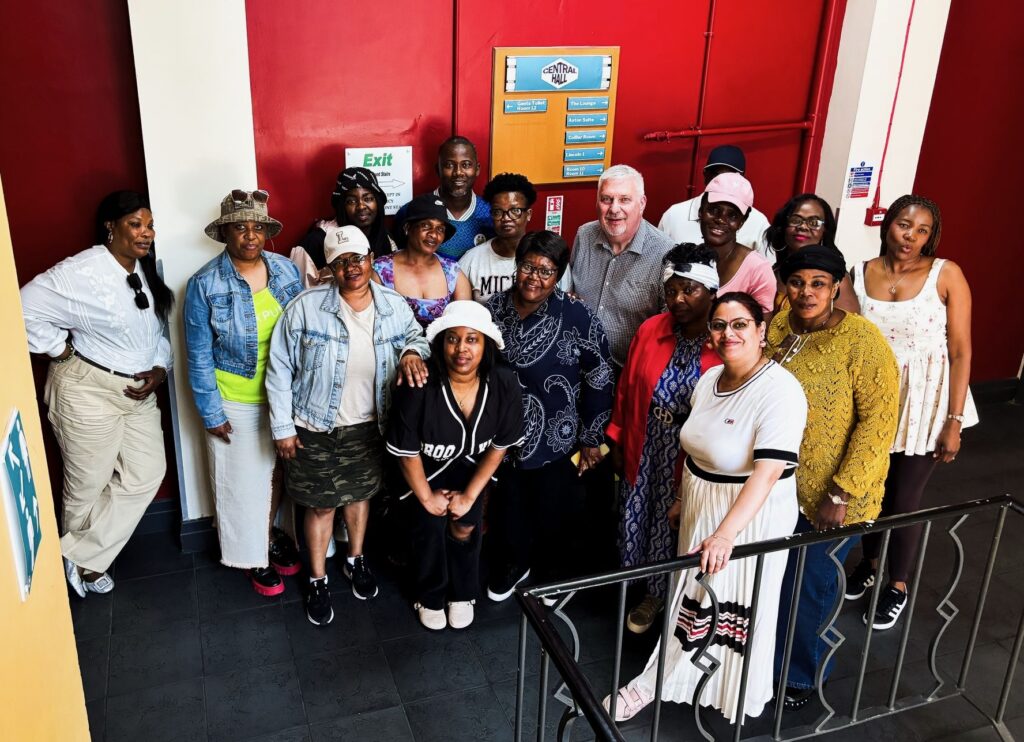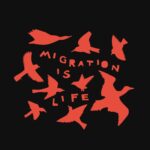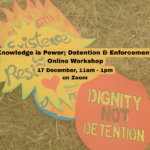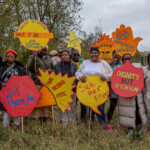“We are not “the crisis”. We are neighbours, mothers, caregivers, workers, fighters. We show up when it counts. We care for one another when the government does not.” Maggy Moyo, our These Walls Must Fall Organiser, explains how people with lived experience of the asylum and immigration system coninue to fight, with their allies, freedom for all.
============================================================================
On Wednesday 1 May, our community gathered at Central Methodist Church in Manchester for what was meant to be a welfare check-in meeting for These Walls Must Fall lived-experience campaigners, a space for rest, solidarity, and emotional support. We were already shaken, still carrying the trauma of Fatou’s detention. Fatou, one of our own, a sister, a friend, was taken from us weeks ago and remained locked in Derwentside detention centre (subsequently, moved to Yarls Wood). Her life is still in danger. Her freedom is still denied.
We were expecting two of our members, our kind and quiet Guy F and the ever-gentle Lady N, to join us for our welfare check-in after reporting at Dallas Court.
But only Guy F returned.
Lady N was detained without warning.
Dallas Court is one of the UK’s many hostile environments dressed up as reporting centres, bland government buildings where people seeking safety are forced to sign in, often week after week, under threat of arrest, detention, or deportation. These centres are built on fear. People walk in never knowing if they will walk out. Lady N did not.
The news reached us just as our meeting began. The air left the room. The food sat untouched. Those who had lived through detention sank into silence. Some wept. Others tried to put words to the pain:
“I go to bed hoping I won’t wake up,because I know I’ll have to report again.”
“My children don’t know what I’m going through. Every day is a fight. Because of lack of legal aid, we pay private lawyers everything we have, but nothing feels certain. We don’t know if we’ll be safe tomorrow.”
What was meant to be a healing space became retraumatizing.
But we were not alone. When we called, you responded.
We sent out a message for help, our friends and allies answered without hesitation. Because we couldn’t be there ourselves for Lady N, you went to Dallas Court. You tried to stop the van. You took action. You refused to let Lady N disappear in silence. To everyone who responded to our call, thank you! For going to Dallas Court, for holding space with us. For signing petitions, writing to MPs, speaking out. You are not just allies. You are our Community.
For some of us who remained for our meeting, by grace, Rev. Ian was already in the building and he joined us. His words carried us when we were crumbling:
“You will always belong here. You are part of Manchester. You are part of this church, and watching you break down in front of me, I will not ignore that. We will stand in the gap. We will fight with you.”
Thanks to swift legal intervention and community pressure, Lady N was released the very next day from Derwentside and safely returned to Manchester. The damage, however, had already been done.
“Lady N is a very young woman,” said Eunice from the WAST Manchester management team.
“This experience traumatised her, and the entire team.”
And before we closed the doors that day, we sat together, tired, tearful, but united, and wrote beautiful letters to Fatou, full of love and power, to keep her spirit going.
Because even when our voices crack, we will keep calling.
And we know, you will keep responding.
Like Fatou, Lady N still lives under the threat of re-detention and deportation. And as if all of this was not already enough, just days later, on 12 May the government released its White Paper on immigration. A document that doesn’t heal or protect, but escalates harm. It promises faster removals, more surveillance, and a deepening of everything our communities already endure.
The White Paper is not a warning, it is a weapon. But let us be clear: our communities are not a burden to this hostile state.
We are not “the crisis”.
We are neighbours, mothers, caregivers, workers, fighters.
We show up when it counts.
We care for one another when the government does not.
When they use us as scapegoats for their failures, on housing, on inequality, on poverty, we see through it. We’ve always lived in a hostile environment. Now, the government is simply writing it in bolder ink.
But we are still here. And we are still fighting.
We may be heartbroken. But we are not broken.
Keep showing up. Keep resisting. Keep standing in the gap.
Because until we are all free, none of us are.
Maggy Moyo, These Walls Must Fall Organiser



















Discussion: